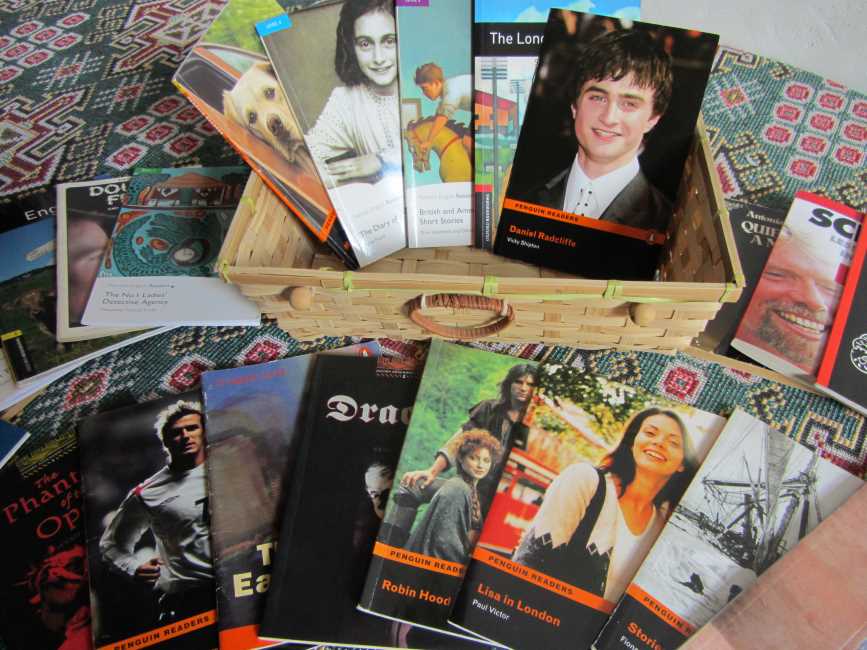When people come to visit us at La Selve, they find that one of the most frequent activities is reading.
I have always enjoyed reading, and at any time, I always have one or two books that I’m in the process of reading. I read a lot of military history, particularly 19th and 20th century. Also biographies and autobiographies. As regards fiction, I enjoy thrillers and detective stories, but also 19th century authors, such as Jane Austen and the Brontë sisters.
Julie is also fond of reading, she is a faster reader than I am, and will read anything; except military history. She also reads more French than I do.
When clients come to La Selve, Julie and I read less, but our guests are encouraged to read as much as possible. For this purpose, we have a set of ‘readers’; fiction, non-fiction, biographies to meet all tastes, and to suit all levels of English ability. Some of the books are written deliberately for English language students. Others are famous books by famous authors, but they have been re-written to suit a particular level of English. Some of these are quite short, forty pages, others are a little longer.

I encourage clients to read for a number of reasons. Between us, we choose a book that the client is interested in, and I help to make sure that the book is of a suitable level. In this way they find that they understand and enjoy reading the book, without the need for a dictionary. Finding that they can quite easily read a book in English from start to finish is an achievement, and helps to build confidence.
While they are concentrating on the story, a number of things are happening ‘behind the scenes’; subconsciously. Every sentence that is read revises grammar. I have just used the passive form of the verb ‘to read’; you have just read it, which revised your knowledge. However, you didn’t have to concentrate on it, in the way that you would if you were working on a grammar exercise. Every sentence that is read revises ‘correct word order’. Every word that is read revises vocabulary and spelling. A final reason, quite simply, is that it gives more practice. In addition to classes, conversations, watching films, walking the dogs and playing games, reading is another way of improving knowledge and increasing conversation.
All of these things happen subconsciously, while the student is enjoying the story.
When we moved to Le Faget, I think that we assumed that we would buy a television, but for a long time, there were more important purchases to be made. We also found that we had an enormous amount of work to be done; around the house and the garden, in addition to our jobs. After a few years of this, we realised that we would have very little time to sit down and watch television, although we were more than happy to read, or to watch a film on a computer. Thus, the idea of buying a television was forgotten, and now, most evenings will find us sitting in the garden, or in front of a fire in winter, reading.
It’s an activity which is very much in keeping with the house; surrounded by fields and woods, a very relaxing place, an ideal place to learn.
